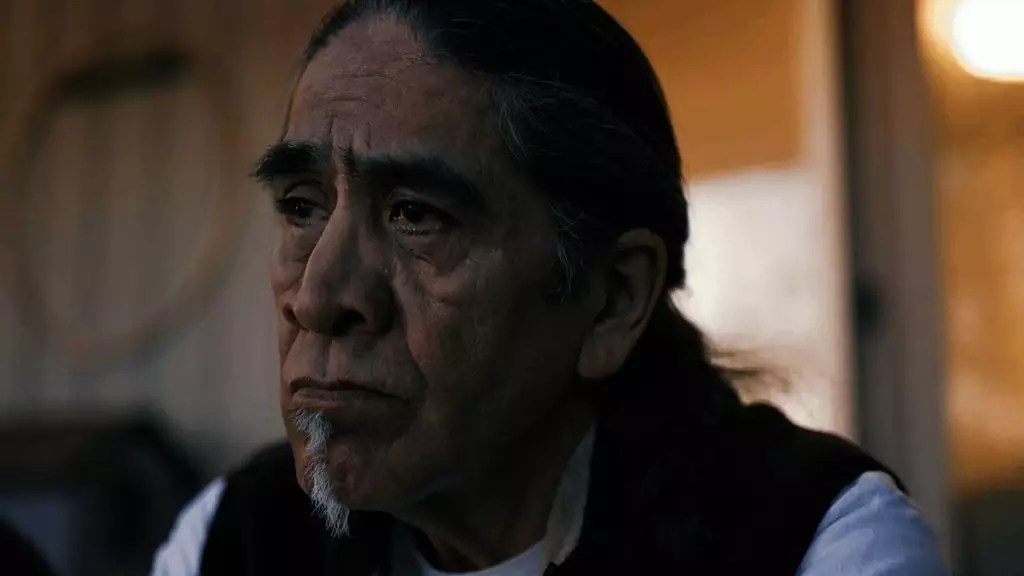Filmmakers Julian Brave NoiseCat and Emily Kassie have embarked on a courageous journey with their thought-provoking documentary, “Sugarcane.” In this gripping film, they delve into the haunting and painful history of the Williams Lake First Nations people and their experiences within the residential school system. Drawing from their backgrounds in activism and journalism, as well as NoiseCat’s personal connection to the story and community, the filmmakers skillfully weave together various narratives to create a compelling and heartbreaking account.
Among the 139 residential schools for Indigenous children located in Williams Lake, British Columbia, the Saint Joseph Mission residential school stands as a symbol of the atrocities committed against First Nation youth. Its aim was to assimilate these young individuals into Euro-Canadian culture by forcibly removing them from their communities and suppressing their traditional languages, cultural practices, and identities.
Students at Saint Joseph endured horrendous living conditions, subjected to menial labor, and were sadly victims of frequent physical, emotional, and sexual abuse. The school left a devastating legacy, tearing families apart and stripping away their cultural heritage. The ruins of Saint Joseph serve as a chilling reminder of a colonial policy that robbed countless individuals of their childhoods and perpetuated generational trauma.
While Canada’s residential school system was undeniably horrific, it’s important to recognize that similar systems existed elsewhere. In the United States, Indigenous children were forcibly taken from their reservations and placed in government-run boarding schools.
American Indian boarding schools such as Pennsylvania’s Carlisle Indian School aimed to eradicate native culture and assimilate the students into Eurocentric society. These institutions imposed harsh discipline, forced manual labor, banned native languages, and routinely subjected students to malnourishment and abuse. The impact of these schools was extensive, with a total of 408 such institutions in the United States.
Through NoiseCat’s father, who attended a similar boarding school in the United States, the film provides an intimate lens into the lasting effects of forced family separation and rampant physical and sexual abuse against children. The filmmakers demonstrate a deep solidarity with the Williams Lake First Nation, capturing their ongoing struggle to heal from the scars inflicted by these schools.
In “Sugarcane,” we witness the transformative power of activism and personal healing. Charlene Belleau, one of the survivors of the residential school system, channels her experience into advocacy and works towards justice, while NoiseCat’s father seeks his path to individual healing. The film showcases the resilience and determination of the communities affected by these schools, despite the intentional efforts to erase their existence.
As investigations into the missing children from these residential schools continue, “Sugarcane” emerges as a powerful witness, shedding light on the immense grief still shrouded in shadows. The filmmakers acknowledge the complexity of moving forward, striking a delicate balance between proper commemoration and protecting survivors from retraumatization.
NoiseCat and Kassie navigate this sensitive terrain with utmost care, showcasing the importance of community-centered reconciliation. By allowing space for conflicting perspectives within affected bands, the filmmakers demonstrate a model of empathy and understanding that is necessary for true healing and resolution.
A Testament to Resilience and Hope
“Sugarcane” stands as a testament to the resilience of communities like the Williams Lake First Nation, who continue to seek reparations for the harms inflicted upon them by the residential school system. The film serves as a rallying cry driven by empathy and the unwavering determination of these communities.
Through their visual storytelling, NoiseCat and Kassie effectively convey the deep scars left behind by schools designed to eradicate Indigenous cultures. They offer hope that a much-needed resolution will come swiftly and that the wounds inflicted by this dark chapter in history can begin to heal.
“Sugarcane” is a brave and compassionate documentary that compels audiences to reflect on questions of morality and justice. By bearing witness to the intergenerational trauma caused by the residential school system, the film challenges us to recognize and respect the humanity of others and ourselves. Through empathy, understanding, and a commitment to reconciliation, we can hope to foster a future that acknowledges the pain of the past while striving for a better tomorrow.


Leave a Reply